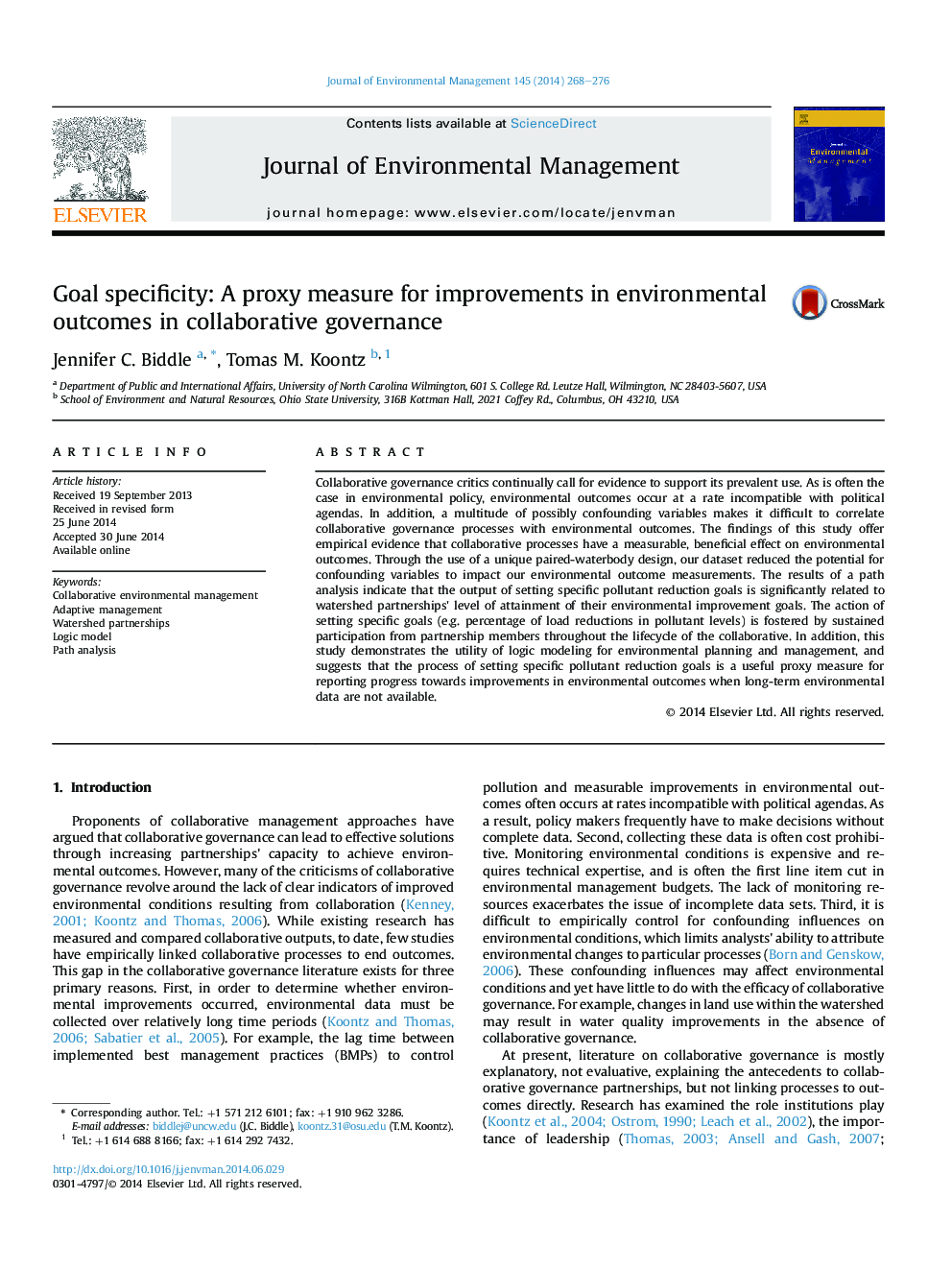| Article ID | Journal | Published Year | Pages | File Type |
|---|---|---|---|---|
| 7483508 | Journal of Environmental Management | 2014 | 9 Pages |
Abstract
Collaborative governance critics continually call for evidence to support its prevalent use. As is often the case in environmental policy, environmental outcomes occur at a rate incompatible with political agendas. In addition, a multitude of possibly confounding variables makes it difficult to correlate collaborative governance processes with environmental outcomes. The findings of this study offer empirical evidence that collaborative processes have a measurable, beneficial effect on environmental outcomes. Through the use of a unique paired-waterbody design, our dataset reduced the potential for confounding variables to impact our environmental outcome measurements. The results of a path analysis indicate that the output of setting specific pollutant reduction goals is significantly related to watershed partnerships' level of attainment of their environmental improvement goals. The action of setting specific goals (e.g. percentage of load reductions in pollutant levels) is fostered by sustained participation from partnership members throughout the lifecycle of the collaborative. In addition, this study demonstrates the utility of logic modeling for environmental planning and management, and suggests that the process of setting specific pollutant reduction goals is a useful proxy measure for reporting progress towards improvements in environmental outcomes when long-term environmental data are not available.
Related Topics
Physical Sciences and Engineering
Energy
Renewable Energy, Sustainability and the Environment
Authors
Jennifer C. Biddle, Tomas M. Koontz,
